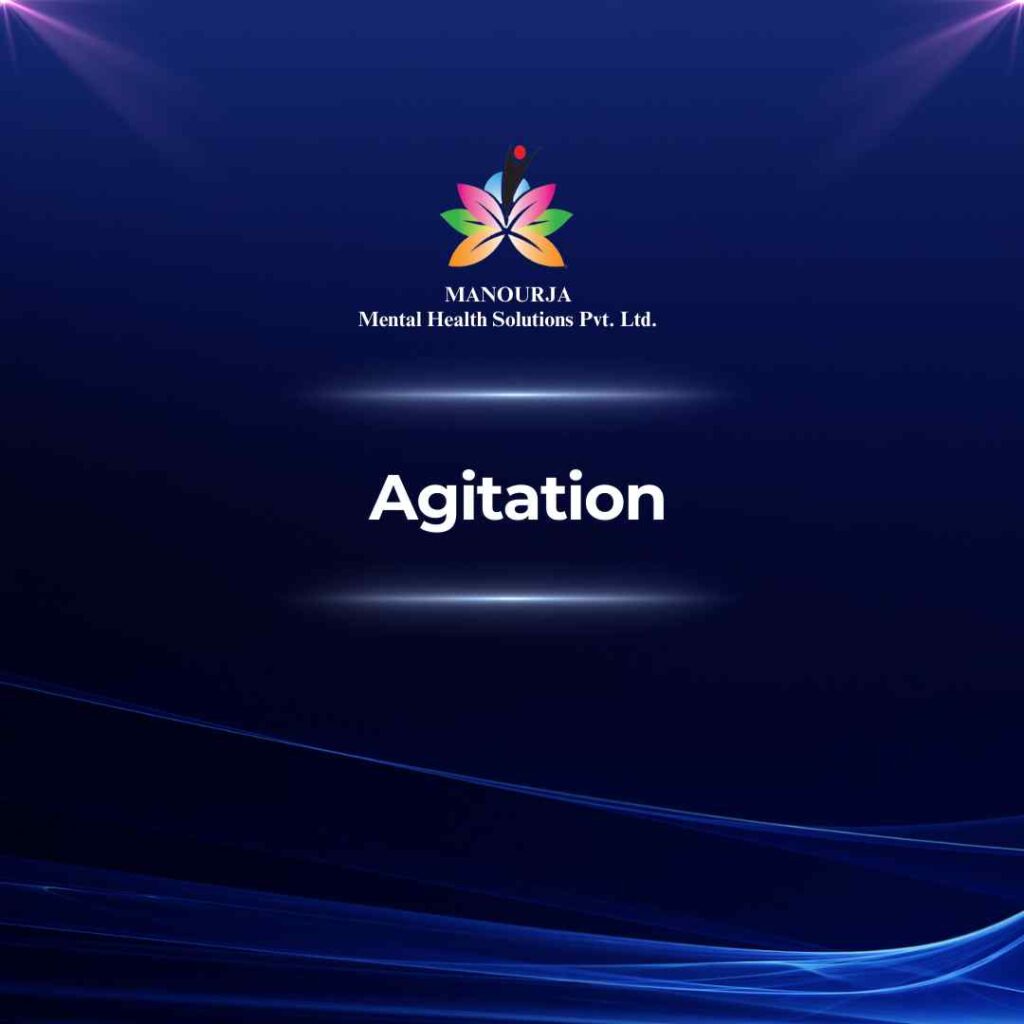Agitation

Agitation refers to a state of excessive restlessness, nervousness, or emotional disturbance. It often manifests as an inability to stay calm, with behaviors such as pacing, fidgeting, irritability, or an intense need to move or talk. Agitation can be triggered by stress, frustration, or an underlying mental health condition.
Agitation as a Sign and Symptom of Mental Illness
In the context of mental illness, agitation can be a prominent symptom indicating that an individual is experiencing significant psychological or emotional distress. It may present as:
- Physical Restlessness: Constant movement, inability to sit still, pacing, or fidgeting.
- Emotional Distress: Increased irritability, anger, or frustration.
- Verbal Outbursts: Rapid or loud talking, shouting, or verbal aggression.
- Hyperactivity: Excessive talking or moving, often without purpose.
Agitation can significantly impact an individual’s ability to function in daily life, affecting relationships, work, and overall well-being.
Mental Illnesses Associated with Agitation
- Generalized Anxiety Disorder, Panic Disorder, and other anxiety-related conditions often feature agitation as a symptom due to heightened arousal and stress.
- During manic or hypomanic episodes, individuals may experience heightened agitation and restlessness. Depressive episodes can also lead to irritability and agitation.
- Agitation can occur, particularly during psychotic episodes, where the individual may feel overwhelmed by hallucinations or delusions.
- Some individuals with depression may exhibit agitation, especially when they feel helpless, hopeless, or frustrated.
Post-Traumatic Stress Disorder (PTSD):
- Agitation can be triggered by reminders of the traumatic event, leading to restlessness, irritability, and hyperarousal.
Obsessive-Compulsive Disorder (OCD):
- Individuals with OCD may become agitated when they are unable to perform their compulsions or when their obsessions are particularly intrusive.
Dementia (including Alzheimer’s Disease):
- Agitation is common in dementia patients, often related to confusion, disorientation, or frustration with cognitive decline.
Attention-Deficit/Hyperactivity Disorder (ADHD):
Agitation can result from hyperactivity and impulsivity, particularly in situations requiring prolonged focus or restraint.
Substance Use Disorders:
Withdrawal from substances like alcohol, opioids, or stimulants can lead to significant agitation and restlessness.
Borderline Personality Disorder (BPD):
- Emotional instability in BPD can result in agitation, particularly in response to perceived rejection or abandonment.
Understanding agitation as a symptom of these mental health conditions is crucial for diagnosis and treatment. Effective management might include medication, psychotherapy, stress-reduction techniques, and supportive care to help individuals manage their symptoms and improve their quality of life.
At MANOURJA, we believe in the transformative power of counseling. Our experienced therapists offer a safe and supportive space where you can explore your thoughts, emotions, and challenges. Through personalized counselling sessions, we’ll work together to develop coping strategies, build resilience, and achieve lasting positive change. Discover the path to a healthier, happier you with MANOURJA counselling services.
MANOURJA Rehabilitation Services
At MANOURJA, we’re dedicated to helping you in rebuild your life, after difficult times. Our rehabilitation services focus on understanding what you need to move forward, whether you’re recovering from addiction, trauma, or any psychological – social challenges. We create personalized plans, that are all about helping you, regain your strength and find hope again. With a caring team by your side, you’ll have the support to make real progress and take steps toward a brighter, healthier future.
